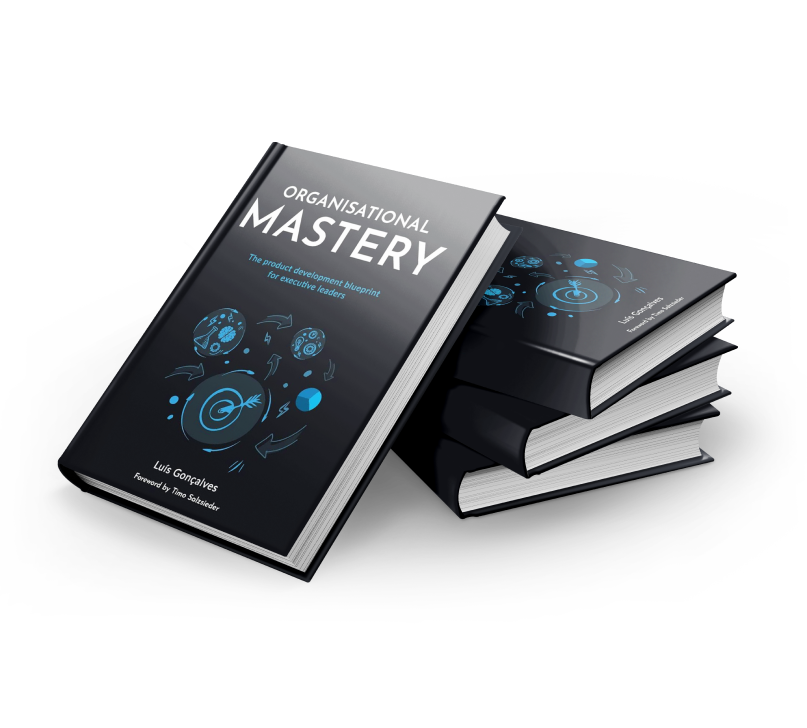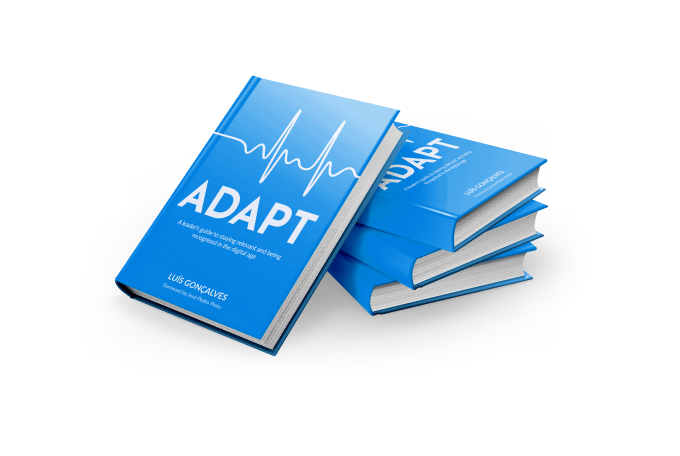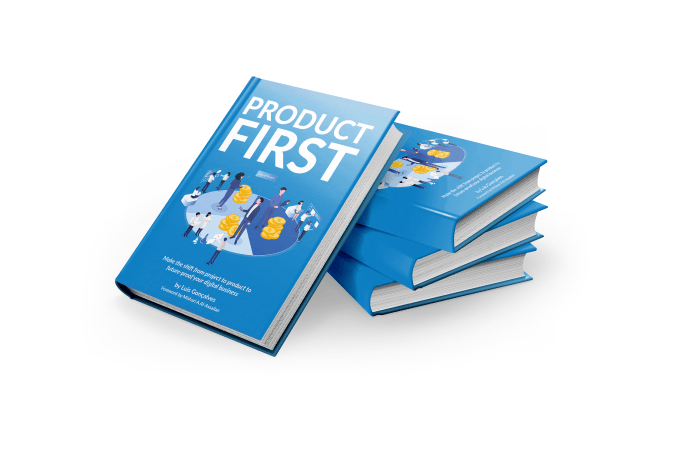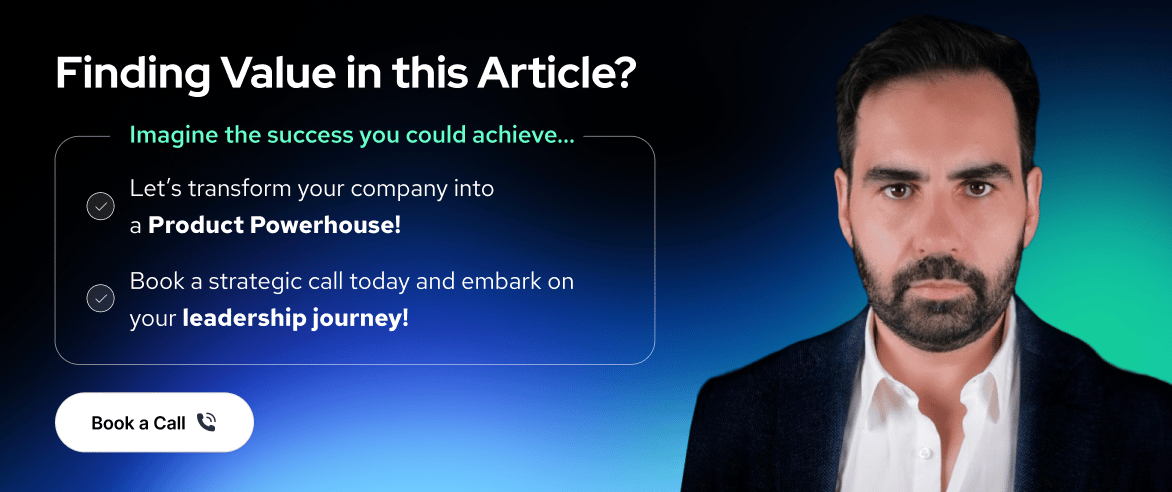Share this
Communities of Practice Tools that Your Team Will Love
by Luis Gonçalves on Jan 13, 2024 6:07:46 AM
Communities of Practice have been an efficient way of leveraging businesses over the past decades, and it’s a mandatory practice for every Digital Product Company.
ADAPT Methodology® is a unique Digital Product Development framework to change traditional project-centric companies toward product-led companies!
Society changed and leaders need support in the way how they lead and design their digital product organizations, that is the reason why the ADAPT Methodology® was created, but now let’s get a deep dive into Communities Of Practice if you want to get a deeper knowledge about this topic.
If you want to exponentially grow the CoPs in your company, you have to make it sure that you have systems and structures in place that would naturally assimilate to the operation of CoPs.
Building and maintaining a community of practice and keeping the members actively engaged in conversations and projects is not an easy task, even for the most highly trained thought leaders.
Wenger et al. (2002) enumerated seven processes that can sustain and cultivate a CoP. These are as follows:
- Designing for evolution
- Facilitating dialogues between members and outside the CoP
- Inviting various levels of member participation
- Developing community spaces
- Concentrating on value
- Combining excitement and familiarity
- Creating a unique rhythm for the CoP
It is difficult to keep track of each process plus the knowledge transfers between members.
Thankfully, there are various tools that leaders and members can use for communication, collaboration, knowledge repository and distribution, and task management to help monitor the progress of the community in attaining goals and maintaining momentum.
Communities of Practice Tools for Communication
Communication is at the core of a community of practice. Wenger points out that members should communicate regularly.
CoP Members must constantly engage with each other to share information, firsthand experiences, opinions and practices.
Finding an effective communication and collaboration tool that fits the needs of the community and connects members, especially those who work remotely is essential if you want to succeed in maintaining a healthy CoP.
Here are some of your options:
Slack
It is a collaboration tool used by SMEs and large enterprises. It is best distinguished by its workspace and channels.
A workspace can be created by the assigned CoP leader who sends email invites to the rest of the community members. As for the channel, you can assign a specific topic and add in contributors.
For example, a CoP of the HR department wants to specifically discuss the onboarding procedure. To organize conversations on onboarding, the account administrators can create a channel labeled #onboarding.
Price: Roughly £6 to £10– the pricing depends on the features and add-ons you need. For small communities, you can try the free account.
Yammer
Connecting with members of an organization is never better with Yammer. It’s an app created by Microsoft that looks and feels like a typical social media network.
However, it is specifically designed for business organizations with its large file upload feature, a video conferencing option, company directory, microblog, profile pages, and easy-to-use interface.
Pricing: The basic package starts at around £2.50 per user account.
Google Hangouts
When it comes to conducting video calls, Google Hangouts is among the top choice of organizations. It can be accessed both through the PC and mobile devices.
Some of the key features of this app are HD video call capability, a group conferencing option, auto screen focus, and personalized control options for admins.
You also have the option to integrate the app with various Google Apps such as Hangouts on Air, an app that allows you to live broadcast videos.
Price: You can access the app for free. Simply create an account on Google and you can organize team conferences already.
Another tool worthy of mention is Facebook’s Workplace. It’s relatively new to the market but one with a promising future because of its advantageous familiarity to users.
Aside from the communication tools mentioned above, your organization must consider using email lists to send updates and messages to every member. You can use tools such as Apple Mail, Mailchimp, and Outlook.
Project Management Tools for Organising Knowledge Resource and Community Tasks
While joining a CoP is voluntary, leaders may designate specific roles to some members to ensure that the community reaches its goal.
iCohere points out that members with designated roles are more likely to engage and participate than those who aren’t assigned any responsibility.
Below are among the most popular project management tools used in various industries today.
Asana
It’s a project management app that allows leaders to assign specific tasks to the members.
For example, the leader of the community may assign a few members to become the discussion facilitator, secretary, photo editor, social secretary, or link mavens.
By designating tasks, it’s easier for leaders to focus on building the community and improving its strategies. Leaders can monitor the progress of members through the app’s highly interactive interface.
Price: You can use it for free or avail of their premium (around £8 per member) or enterprise package if you wish to access more advanced customization features.
Trello
Trello is a Kanban project management tool that communities of practice can potentially use.
Leaders can assign tasks, set deadlines, provide details of the tasks, attach supporting documents, and more using a card. Members can drag and drop each card into the appropriate lists.
Price: Creating a basic account is free, but if you want to access more features, you can either pay £35 a year or £4 per month.
Cloud Storage Apps for Communities of Practices
A cloud storage app is essential to any organization. It provides quick, secure, and safe access to databases, files, and other important documents that the member may need.
Some of the best cloud storage apps you can use are OneDrive, Google Drive, Box, Dropbox, and Amazon Drive.
Most of these cloud storage companies provide limited storage space for free. If you want to avail more storage for the CoP files and documents, you can purchase storage space add-on packages.
How A Community Blog and Wiki Can Help a Community of Practice
Blogs and wikis are considered effective vessels of learning.
Blogs mostly focused on personal or collective reflections and opinions, while wikis are an open source and searchable knowledge base about various niches and topics.
Despite their differences, both types of web-based collaboration software serve the purpose of collecting and collating information that may offer value to a community.
CIO also explains that aside from providing information, as examples of social software, blogs, and wikis allow the audience to interact and contribute to the knowledge base.
Furthermore, Boulos et al. (2006) explain that if properly constructed and deployed, blogs and wikis can significantly improve knowledge absorption and boost engagement and collaboration among members of a community of practice.
There are thousands of available tools and techniques that CoPs can use to sustain engagement, improve knowledge transfer, and open communication lines among members.
Pick one that will best suit the needs of the community. Among the community of practice tools mentioned above, what are your favorite (s)? How do you use them for your community’s advantage? What apps do you use for your CoP?
Did you like this article?
We enable leaders to become highly valued and recognized to make an impact on the World by helping them to design Digital Product Companies that will thrive and nourish in the Digital Age, we do this by applying our own ADAPT Methodology®.
If you are interested in knowing if you have what it takes to design and build a great digital product company simply take our Digital Leadership Influence Scorecard.
If you want to know how we can help you to start your transformation please check out our: Training.
If you are interested in doing a transformation in your company please check out our: Consulting.
Share this
- Agile Methodologies (18)
- Product Strategy (18)
- OKRs (16)
- Scrum (16)
- Product Mindset (14)
- Project To Product (10)
- Agile Retrospectives (9)
- CoPs (9)
- Knowledge Sharing (9)
- Time To Market (8)
- Product Discovery (7)
- Continuous Improvement (5)
- Strategy (5)
- Scrum Master (4)
- Content Marketing Strategy (3)
- Product Owner (3)
- Technical Excellency (3)
- Digital Transformation (2)
- Innovation (2)
- Scaling (2)
- Team Building (2)
- Business Model (1)
- Cost Of Delay (1)
- Customer Feedback (1)
- Customer Journey (1)
- Customer Personas (1)
- Design Thinking (1)
- Digital Leadership (1)
- Digital Product Tools (1)
- Go To Market Strategy (1)
- Google Design Sprint (1)
- Lean Budgeting (1)
- Lean Change Management (1)
- Market Solution Fit (1)
- Organisational Impediments (1)
- Outsourcing (1)
- Product (1)
- Product Metrics (1)
- Product Roadmaps (1)

Organisational Mastery
Get your free copy

ADAPT
Get your free copy

Product First
Get your free copy


